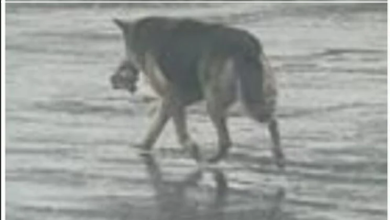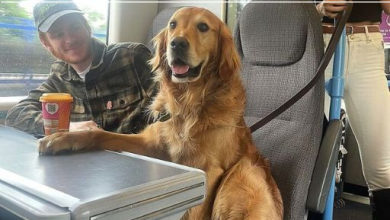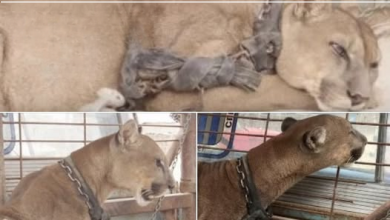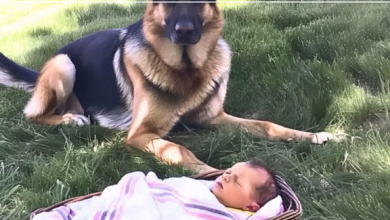My brother’s dog won’t eat, move, or even look at me now that he’s gone on a work trip.
My Brother Left for a Work Trip—Now His Dog Is Heartbroken and Won’t Acknowledge Me
When my brother asked me to watch his dog for a two-week business trip to Berlin, I thought it’d be a simple task. “Just feed him, walk him, maybe scratch behind the ears,” he said casually as he dropped off Rocco—his fiercely loyal, three-year-old Doberman with a heart bigger than most people I know.
At first, Rocco adjusted fine. He explored a little, curled up in his bed, and gave me a few judgy side-eyes like he wasn’t thrilled with my decorating. But by the third day, everything changed.
He stopped eating. Refused his food unless I hand-fed him, and even then barely chewed. He just lay there, unmoving, his head drooping like he’d lost his spark.
I tried everything—his favorite tunes, familiar walking routes, even wearing my brother’s hoodie to trick him with the scent. Nothing helped.
I hoped it was temporary. Just a bout of missing his owner. But as the days went on, his withdrawal deepened. I felt helpless—this was way beyond my experience, and I didn’t know how to connect with him.
By day ten, I was worried. Calls and messages to my brother went unanswered, and I feared Rocco might be sick. So I took him to the vet. Surprisingly, as soon as we arrived, Rocco stood up like he knew help was near.
The vet examined him and asked, “Has anything changed recently?” I explained his behavior and how he hadn’t perked up since my brother left.
She nodded thoughtfully. “It sounds like he’s experiencing emotional distress—possibly even depression. Dogs with strong bonds to their humans can really struggle with separation.”
I was stunned. “He’s this upset… because he misses my brother?”
“Yes,” she said gently. “For dogs like Rocco, that kind of bond runs deep.”
We started him on mild anti-anxiety meds, and I focused on keeping his routine as familiar as possible. Walks, playtime, even quiet evenings on the couch. Slowly, Rocco began to show signs of recovery. He started eating again, wagged his tail a little, even greeted me at the door. But his sadness still lingered in his eyes.
Then, a week later, my brother finally returned my messages.
When I told him what was happening, he sounded genuinely shaken. “I knew he’d miss me, but not like this. We’ve never been apart for this long.”
That conversation made me realize something important—I wasn’t just dog-sitting. I was filling in for someone irreplaceable. No matter how much I cared, I wasn’t his person.
“I’m trying my best,” I said, “but I don’t think it’s enough. He needs you.”
My brother agreed—and decided to cut his trip short.
In the days that followed, I told Rocco his favorite human was coming back. I don’t know if he understood, but he seemed to shift—his ears perked up more, his eyes held a flicker of hope.
When my brother finally walked through the door, Rocco lit up. His joy was instantaneous—tail wagging, paws scrambling, pure elation. It was like he’d come back to life.
That’s when I understood: Rocco didn’t need me to replace his person. He just needed someone to help him hold on until his person came home.
This experience taught me a humbling truth: sometimes love, especially the kind between a person and their pet, is irreplaceable. And the best we can do is be present, offer support, and know when to step aside.
If you know someone navigating separation—whether from a loved one or even a pet—share this with them. Sometimes the smallest gestures mean the most when someone’s holding on.




